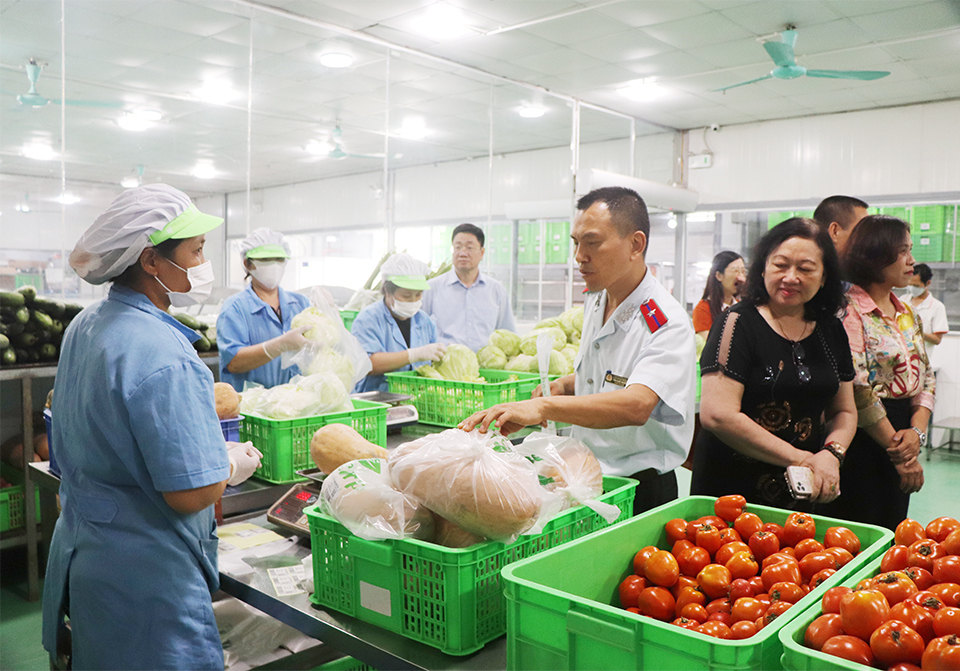PUBLIC SERVICES

Food production and business establishments, as well as consumers, were reminded not to use livestock or poultry that had died from disease or unknown causes for food or food processing.
To ensure clean water, food safety, environmental sanitation, disease prevention, and waste management following typhoon Yagi, or No. 3 in Vietnam and the 2024 floods, the Hanoi Department of Health issued Plan No. 4301/SYT-NVY to public and private healthcare units under its jurisdiction for implementation.

Interdisciplinary Task Force No. 1 on Food Safety from Hanoi City conducts an inspection at a supermarket in Thanh Tri District.
According to the plan, the Department of Health requested these units to strictly adhere to previous directives, including Official Document No. 2647/SYT-NVY dated June 14, 2024, on ensuring clean water, environmental sanitation, and medical waste management during the 2024 rainy and flood season, and Official Document No. 3607/SYT-NVY dated August 2, 2024, on enhancing healthcare services during the rainy and flood season. In addition, Official Document No. 278/SYT-NVY dated September 5, 2024, specifically addressed preparations for Typhoon No. 3 and the subsequent floods.
Hospitals at the city level, private hospitals, and district hospitals were instructed to prepare personnel, equipment, and medicine supplies to participate in emergency rescue operations and provide support when required. Each unit was tasked with organizing mobile emergency and surgical teams, ensuring readiness for immediate deployment. Strict adherence to on-call schedules and healthcare response protocols was emphasized.
District, town, and municipal health centers were advised to collaborate with local health departments and related units to assist local authorities in implementing environmental sanitation measures, disease prevention, food safety practices, and clean water assurance. These units were also asked to distribute medicines for treating common ailments during the rainy season (such as skin diseases, digestive disorders, eye infections, and dengue fever) with a focus on areas affected by flooding. Additionally, the units were tasked with intensifying public health campaigns to raise awareness about clean water, food safety, and disease prevention during the storm season.
Food production and business establishments, as well as consumers, were reminded not to use livestock or poultry that had died from disease or unknown causes for food or food processing. People were urged to follow proper food safety practices, including cooking food thoroughly and boiling water before drinking. Efforts were also ramped up to monitor food poisoning and foodborne diseases within the community.
The Hanoi Center for Disease Control (CDC) was instructed to guide, inspect, and oversee district health centers in carrying out these activities. The CDC was also tasked with enhancing inspections of environmental sanitation, disease prevention, water quality for drinking and domestic use, and the collection and disposal of medical waste, particularly in healthcare facilities or flood-prone areas.
The Hanoi Food Safety and Hygiene Department was directed to continue inspecting food production and trading establishments to ensure the quality of food circulating in the market.
Additionally, the quality of food and water provided by organizations and individuals to flood-affected residents was to be closely monitored, ensuring that no spoiled, moldy, damaged, or expired products reached those in need.
Ngoc Mai